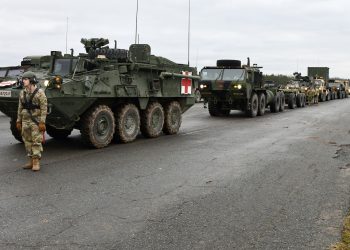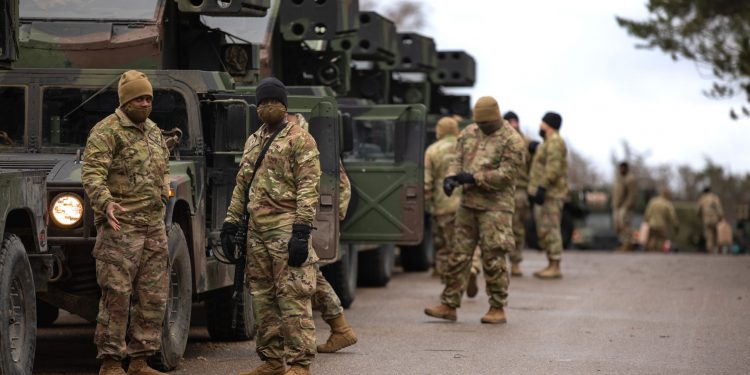Another 3,000 troops from the 82nd Airborne Division will move to Europe in the coming days, and Secretary of Defense Lloyd J. Austin III is temporarily repositioning 160 troops training Ukraine’s military out of the country.
The moves come in the face of further signs of Russian escalation on its borders with Ukraine, said Jake Sullivan, President Joe Biden’s National Security Advisor. Sullivan spoke at the White House, yesterday.
“As we’ve said before, we are in the window when an invasion could begin at any time should [Russian President] Vladimir Putin decide to order it,” the national security advisor said. Sullivan said this new invasion of Ukraine — Russia invaded the country in 2014 and illegally annexed Crimea — could come at any time.”
Sullivan said the United States is ready no matter which decision Putin makes. The United States will negotiate if the Russian leader so chooses, or “we are also ready to respond decisively, alongside those allies and partners, should Russia choose to take military action,” he said.
The response to a Russian invasion would include severe economic sanctions, with similar packages imposed by the European Union, the United Kingdom, Canada and other countries, Sullivan said. “It would also include changes to NATO and American force posture along the eastern flank of NATO, and it would include continued support to Ukraine,” he said.
A total of 160 members of the Florida National Guard have been deployed to Ukraine since late November training and advising and mentoring Ukrainian armed forces. The troops, assigned to the 53rd Infantry Brigade Combat Team, are part of the Joint Multinational Training Group-Ukraine.
“They are departing Ukraine and will reposition elsewhere in Europe,” Pentagon Press Secretary John F. Kirby said in a written statement Saturday. “The secretary made this decision out of an abundance of caution — with the safety and security of our personnel foremost in mind — and informed by the State Department’s guidance on U.S. personnel in Ukraine.”
Yesterday, a senior defense official confirmed that another 3,000 soldiers from the 82nd Airborne Division based at Fort Bragg, North Carolina, will deploy to Europe. “This second tranche of airborne soldiers will join in Poland the first tranche of 1,700 soldiers and key enablers that Secretary Austin ordered there on February 2nd,” said the senior defense official speaking on background. “Nearly two-thirds of this first tranche has already arrived. They are commanded by Army Maj. Gen. Christopher Donahue.”

Deployment of 300 members of the 18th Airborne Corps headquarters element to Germany has been completed, the official said. That element is led by Army Lt. Gen. Michael Kurilla.
“All told, these 5,000 additional personnel comprise a highly mobile and flexible force, capable of multiple missions,” the official said. “They are being deployed to reassure our NATO allies, deter any potential aggression against NATO’s eastern flank, train with host-nation forces and contribute to a wide range of contingencies. They will report to Air Force Gen. Tod Wolters, the commander of U.S. European Command.”
There are more than 80,000 American service members in Europe.
Diplomacy continues. Biden spoke with Putin this morning. A White House release said Biden spoke very plainly about the costs of another Russian invasion of Ukraine. “President Biden was clear that, if Russia undertakes a further invasion of Ukraine, the United States together with our allies and partners will respond decisively and impose swift and severe costs on Russia,” the report said. “President Biden reiterated that a further Russian invasion of Ukraine would produce widespread human suffering and diminish Russia’s standing. President Biden was clear with President Putin that while the United States remains prepared to engage in diplomacy, in full coordination with our allies and partners, we are equally prepared for other scenarios.”
Yesterday Biden participated in a conference with the leaders of the United Kingdom, France, Germany, Italy, Canada, Poland, Romania, the Secretary General of NATO and the Presidents of the European Union. “We have achieved a remarkable level of unity and common purpose — from the broad strategy, down to technical details,” Sullivan said. “Whatever happens next, the West is more united than it’s been in years. NATO has been strengthened. The alliance is more cohesive, more purposeful, more dynamic than at in any time in recent memory.”










